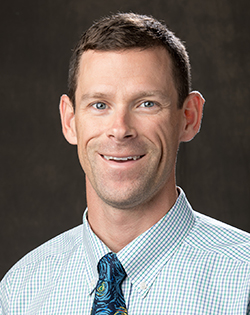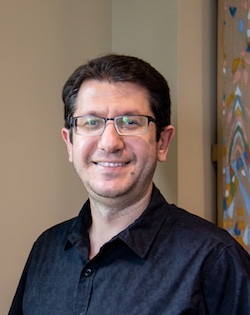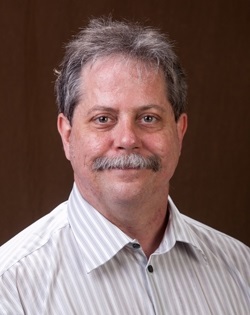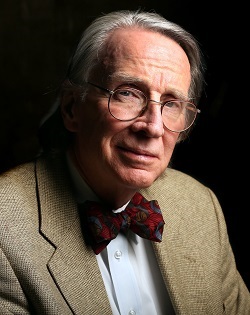Spring 2024 MHC Special Topics and Colloquia
MHC Colloquia
Public Enemies, Prisons, and...Tourists?
HON 300 | 3 credit hours
- Tuesday and Thursday 11:10 am - 12:30 pm
How is it that the United States has the highest incarceration rate in the world but
also romanticizes outlaw criminals like Jesse James, Billy the Kid, John Dillinger,
and Bonnie & Clyde? They would’ve been long forgotten if not for the “dime” novels,
detective magazines, comics, songs, and old movies that turned these criminals into
legends.
Today, these legends remain household names as they are celebrated at festivals, museums, and in contemporary films. Scholars in this colloquium will attempt to reconcile the apparent contradiction between romanticized outlaws and mass incarceration through a tourism lens while tackling contemporary issues like income inequality, racial injustice, and mass incarceration.
Excursions: Alcatraz East Crime Museum and Brushy Mountain State Penitentiary
Instructor
Eric Knackmuhs received his Ph.D. from the Department of Recreation, Parks, and Tourism Studies at Indiana University. Prior to entering academia, he spent his time on “The Rock,” as an historical interpreter on the Alcatraz Night Tour. There, he became interested in why people visit prison museums, what outcomes they experience, and how prison museums can serve as a platform for discussing contemporary criminal justice issues. He has published several articles on these topics. He enjoys reading, triathlon-ing, and visiting historic sites and national parks with his wife, Katie, and infant son, Benjamin.
Innovative Thinking
HON 300 | 3 credit hours
- Tuesday and Thursday 10:00 - 11:20 am
Everyone desires to be innovative. But how is it achieved? Creativity and innovation
can be learned, developed,
and mastered. Innovative thinking and creative problem-solving processes are divided
into practical steps that
guide you from problem-finding to implementing your solutions. This colloquium offers
a framework for
creative problem-solving and a path to innovation.
Instructor
Dr. Hasan Akdeniz is a Post-Doctoral Student who is working this year in The Center for Gifted Studies on WKU's campus.
Illegal Trade and the Conservation of Wildlife
HON 300 | 1 credit hour
- Tuesday 8 am
Natural and manmade systems are globally and functionally intertwined. Natural resources are fundamental to human survival and functional society. Wildlife is an important natural resource, from pollinators to ensure crop success to fish stocks that feed much of the world. The value of some natural resources leads to criminal activity, including illegal harvesting, trafficking and stockpiling of these resources, e.g. tropical fish for the pet trade, rhino horn and pangolin scales for pseudo-medical treatment, and many others.
Organized crime syndicates are now involved in the illegal wildlife trade, which has come under scrutiny by international law enforcement agencies. Unregulated harvest and transportation of wildlife also presents risks to public health. The leading theory of the origin of COVID-19 places first transmission to humans in an illegal wildlife market in Wuhan, China. Illegally released Burmese pythons have decimated the mammalian communities of the Florida Everglades, while snakehead fish, illegally imported into the US and released into waters along the East Coast have become a major focus of concern for fish and wildlife agencies and cost taxpayers many millions of dollars to attempt to eradicate them. In this course, we’ll examine the motivation, means and outcomes of the illegal wildlife trade, and explore attempts to curtail this highly dangerous international criminal enterprise.
Instructor
Dr. Michael Stokes' current research projects include the NSF-funded project ‘Development of Automated Systems to Increase Crop Yield by Reducing Group Foraging Intensity by Crop Pests’, an attempt to leverage evolved wildlife anti-predator behaviors to reduce crop damage on African subsistence farms. Also underway is a project in Kenya to determine whether greater galagos could serve as an effective flagship species for raising interest and funding for East African forest conservation.
Special Topics in Geology: Mammoth Cave National Park
HON 490 | 3 credit hours
- Wednesday 3:00 - 4:30 pm
- (On 4 of these Wednesdays, we will leave at 3:00 for surface and underground
excursions, returing later in the evening. There will also be a Saturday trip.)
Mammoth Cave National Park is a global treasure that has been honored by the United Nations as both an International Biosphere Reserve and a World Heritage Site. In addition to protecting the world’s most extensive known cave system, the park has many beautiful and hidden gems which we will explore extensively by foot and canoe.
In this course we will investigate why this place is so special. In addition to the cave, we will investigate the geology, ecology, hydrology, archeology, and history of the park.
Note: This course will involve relatively strenuous field trips both on the surface in the national park and in passages both on and off of the tourist trails in Mammoth Cave. Although there will be no hazardous activities or any that require special training (use of ropes, for example), for the safety of all involved all students must be in good physical condition. Students will comply by relevant policies in the document “Risk Management at Western Kentucky University.” Potential hazards in the park, particularly on the surface activities, include poison ivy, ticks, chiggers, and (rare but present) poisonous snakes. We will instruct students about these and how to best protect themselves.
Instructor
Geologists Chris Groves (PhD University of Virginia) and Pat Kambesis (PhD Mississippi State University) have been exploring, studying, and writing about the park’s surface & underground, physical, & cultural landscapes for more than three decades each.
Understanding the Life and World of an American Author: Ernest Hemingway
HON 300 | 1 credit hour
- Wednesdays, 2:00 - 3:00 pm
Ernest Hemingway, one of America’s most famous Nobel-Prize recipients, utilized the short-story format for some of his most important work. These stories not only introduce the reader to the author’s worldview but also to his legendary minimalist style, a style which he described as utilizing the “iceberg technique”—one-eighth atop the surface and seven-eighths below.
In this course, students will actively participate in diving below the surface and analyzing a story’s meaning and craftsmanship. Following a reading quiz or short writing assignment, we will cover one story per week, around fourteen or fifteen by the end of the semester.
Instructor
Associate Professor Walker Rutledge has achieved several curious distinctions: he started the English Department’s Honors Program over thirty years ago and has overseen it ever since; he has taught more different English courses than anyone else in the history of the Western Kentucky University; and believing that nothing brings literature to life more readily than appreciating its origins, he holds the dubious record for organizing and conducting the most field trips and study-tours for students.
Spring 2024 Faculty

Dr. Eric Knackmuhs
Associate Professor,
Recreation, Park, and Nonprofit Administration
Public Enemies, Prisons, and...Tourists?

Dr. Hasan Akdeniz
Postdoc Scholar,
The Center for Gifted Studies
Innovative Thinking

Dr. Michael Stokes
Professor, Biology
Illegal Trade and the Conservation of Wildlife

Dr. Chris Groves
University Distinguished Professor, Geological Sciences
Director, Crawford Hydrology Lab
Mammoth Cave National Park

Dr. Pat Kambesis
Instructor, GISP
Earth, Environmental, and Atmospheric Sciences
Mammoth Cave National Park

Dr. Walker Rutledge
Associate Professor, Emeritus
English
Understanding the Life and World of an American Author: Ernest Hemingway
Some of the links on this page may require additional software to view.

